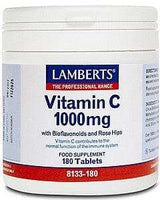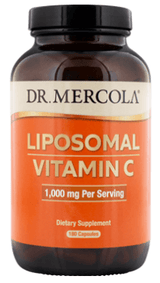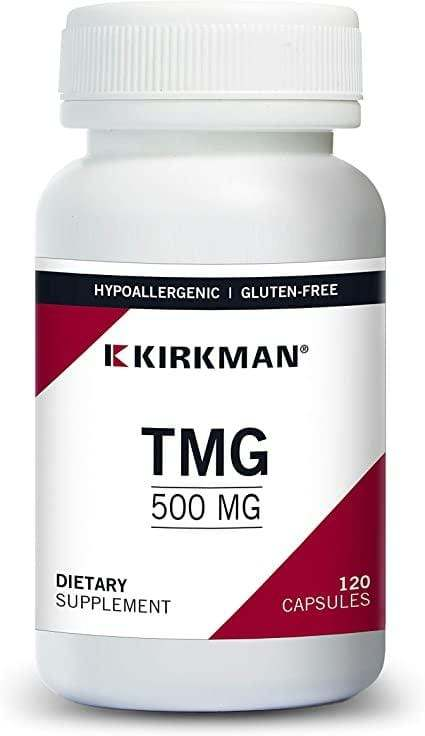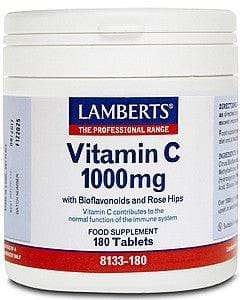Winter Health Check


Related products
Introduction
Winter, with its distinct chill and shorter days, brings a unique set of health challenges. This season's impact on health is multifaceted, stemming from environmental, physiological, and psychological factors. Understanding these changes is crucial for adapting our health strategies to stay well during these colder months.
The cold weather itself is a significant factor. It's not just about feeling chilly; the lower temperatures can profoundly affect the body. Dr. Emily Lawson, a leading UK-based General Practitioner, explains, “The cold weather can constrict blood vessels, which may exacerbate conditions like heart disease and circulation problems. It also challenges our immune system, making us more susceptible to common winter illnesses like colds and flu.” This physiological response to cold weather is a key reason winter health checks become so important.
Moreover, winter's shorter daylight hours can impact mental health. Seasonal Affective Disorder (SAD) is a type of depression that's related to changes in seasons, beginning and ending at about the same times every year. According to the NHS, about 2% of the UK population, particularly in northern areas, are affected by SAD. Dr. Lawson adds, “The lack of sunlight in winter can disrupt your body's internal clock and lead to feelings of depression.” This sheds light on the importance of considering mental health as a critical component of winter health checks.
The importance of a seasonal health check cannot be overstated. Winter brings about a change in lifestyle – we tend to exercise less, eat more, and stay indoors, which can impact our overall health. Dr. James O'Brien, a cardiologist, highlights the significance of regular health checks during winter, “People are less likely to be active during the colder months. This, coupled with holiday eating, can lead to weight gain, increased blood pressure, and cholesterol levels – all risk factors for heart disease.” Therefore, a health check in winter can help in identifying and mitigating these risks.
Statistics show that winter also sees an increase in hospital admissions. The British Heart Foundation has reported a spike in heart attack cases during winter, attributing it to the cold weather putting an extra strain on the heart. Regular health checks can help in early detection and management of such risks.
Furthermore, winter checks are crucial for the elderly and those with chronic conditions like asthma or diabetes. As Dr. O'Brien notes, “Cold weather can be particularly harsh on the elderly and those with chronic illnesses. Regular monitoring and medication adjustments are often necessary during winter.”
In essence, winter health checks are about adapting our healthcare strategies to meet the season's demands. It's not just about managing existing conditions; it's also about preventive care. As Dr. Lawson says, “Prevention is better than cure. A winter check-up can help in identifying potential health issues before they become serious problems.”
The shift to colder weather necessitates a shift in our approach to health. Winter health checks are a proactive step towards maintaining good health throughout the season. They help in addressing the unique challenges that winter presents, from increased risk of heart problems and infections to the impact on mental health and the well-being of vulnerable groups. As we brace for the chill, let's remember that our health needs a winter strategy too.
What Does a Winter Health Check Include?
A winter health check, tailored to combat the unique challenges posed by the colder months, is comprehensive, focusing on both physical and mental well-being. Dr. Emily Lawson, a General Practitioner, emphasizes, “A winter health check goes beyond a routine examination. It's specifically designed to address the seasonal factors that impact our health.”
Overview
The core of a winter health check is a series of assessments and tests that are particularly pertinent during the colder season. Dr. Lawson explains, “We start with a cardiovascular assessment, which is crucial given the increased heart-related risks during winter.” This includes blood pressure monitoring, cholesterol checks, and in some cases, an ECG (electrocardiogram) to assess heart health.
Respiratory health is another critical aspect. With the rise in cases of flu and other respiratory illnesses during winter, lung function tests become particularly relevant. “We often see a spike in respiratory issues during winter, so lung function tests are a key component of the check-up,” says Dr. James O'Brien, a respiratory specialist.
Blood tests play a significant role in a winter health check. They are used to evaluate levels of essential nutrients, like Vitamin D, which often plummet during winter due to reduced sunlight exposure. Dr. Lawson states, “Vitamin D deficiency is a common issue in the UK during winter, and it's vital for bone health and immune function.”
Mental health screening is also an integral part of a winter health check. The lack of sunlight and shorter days can lead to Seasonal Affective Disorder (SAD) or exacerbate existing mental health conditions. “We include a mental health screening to check for signs of SAD or other mental health issues that might be aggravated by the season,” remarks Dr. O'Brien.
Importance of Individualized Health Checks

The necessity for individualized health checks during winter cannot be overstated. Every individual’s health needs vary, more so during winter when conditions like arthritis might worsen due to the cold, or when the risk of falls in the elderly increases due to icy conditions. Dr. Lawson highlights, “Personalized care in winter is crucial. For instance, the elderly might need more frequent blood pressure monitoring, while those with chronic conditions like asthma might require a review of their medication.”
Statistics reinforce the importance of tailored health checks. According to NHS data, winter sees a marked increase in hospital admissions among the elderly, often due to preventable issues that could have been managed with regular monitoring and early intervention.
A winter health check also includes a review of the patient’s medication, as Dr. O'Brien explains, “We assess if any medication adjustments are needed to better manage conditions like hypertension, which can be affected by colder weather.”
A winter health check is an all-encompassing approach to health, considering the specific challenges of the season. It includes a range of assessments and tests, from cardiovascular and respiratory checks to mental health screenings, and emphasizes the importance of personalized care. This proactive health strategy is vital in managing the increased risks associated with winter, ensuring well-being during this challenging season.
Common Winter Health Issues
The winter season, with its distinctive cold and damp conditions, often leads to a surge in specific health issues. Understanding these common ailments, their symptoms, prevention strategies, and treatment options is crucial for maintaining good health during this period.
Colds and Flu
Colds and flu are arguably the most common health issues during winter. Dr. Emily Lawson, a General Practitioner, notes, “The symptoms of colds and flu often overlap, but they are caused by different viruses. While colds are generally milder, flu can be quite severe.”
The symptoms of a cold include a runny or blocked nose, sore throat, sneezing, and coughing. Flu symptoms are similar but also include a high temperature, fatigue, and muscle aches. Dr. Lawson adds, “Distinguishing between a cold and flu is important because flu can lead to complications, especially in the elderly or those with pre-existing health conditions.”
Prevention strategies are essential in mitigating the spread and impact of these illnesses. “Regular hand washing, staying hydrated, and getting the flu vaccine are effective ways to prevent flu and colds,” advises Dr. James O'Brien, a respiratory specialist. The flu vaccine is particularly important, as per NHS guidelines, for vulnerable groups, including the elderly, pregnant women, and those with chronic health conditions.
Seasonal Affective Disorder (SAD)
Seasonal Affective Disorder (SAD) is another significant health issue during winter. Characterised by depressive symptoms that occur at a specific time of year, usually in winter, SAD can profoundly impact an individual’s daily life. “The symptoms of SAD include persistent low mood, loss of pleasure or interest in normal everyday activities, irritability, feelings of despair, guilt and worthlessness, and lethargy,” explains Dr. Lawson.
Diagnosing SAD can be challenging, as its symptoms often resemble those of other types of depression. Dr. Lawson suggests, “If you experience depressive symptoms regularly at the same time of year, it's important to discuss this with your GP.”
Treatment options for SAD vary. Light therapy, where a special lamp called a light box is used to simulate exposure to sunlight, is commonly used. “Light therapy has been proven effective for many people with SAD,” says Dr. O'Brien. Additionally, talking therapies like cognitive behavioural therapy (CBT) and medication such as antidepressants can be effective.
Dry Skin and Dermatitis
Dry skin and dermatitis are prevalent in winter due to the cold, dry air and central heating. “The lack of humidity in the air during winter can strip your skin of its natural moisture, leading to dryness, itchiness, and in some cases, dermatitis,” explains Dr. Lawson.
Prevention of dry skin includes staying hydrated, using moisturisers, and avoiding harsh, drying soaps. Dr. Lawson advises, “Choosing skincare products carefully and keeping your skin moisturised can significantly prevent dry skin and dermatitis.”
For those already suffering from dermatitis, treatment involves the use of emollients and topical steroids. “Emollients are moisturisers that are used directly on the skin to reduce water loss and cover it with a protective film,” says Dr. O'Brien. “In more severe cases, topical steroids may be prescribed to reduce inflammation.”
The common winter health issues of colds and flu, Seasonal Affective Disorder, and dry skin and dermatitis can be effectively managed with the right knowledge and strategies. From preventative measures like flu vaccinations and regular moisturising to treatments like light therapy and emollients, these strategies are crucial in maintaining health and well-being during the winter months.
Nutritional Needs in Winter

During the winter months, our nutritional needs shift significantly, influenced by changes in the weather, reduced daylight hours, and altered lifestyle habits. Understanding these needs and adjusting our diets accordingly can play a crucial role in maintaining our health throughout the season.
Essential Vitamins and Minerals
Vitamin D and its Importance
Vitamin D, often dubbed the 'sunshine vitamin', is pivotal in winter when natural sunlight exposure is limited, especially in countries further from the equator. Dr. Emily Lawson, a nutritionist, highlights, “Vitamin D deficiency is more prevalent in winter. It's crucial for bone health, immune function, and even mood regulation.” The NHS has noted that during the winter months in the UK, many individuals do not get enough Vitamin D from sunlight alone.
Sources of Vitamin D include fatty fish, such as salmon and mackerel, egg yolks, and fortified foods. However, Dr. Lawson advises, “Considering the limited dietary sources, Vitamin D supplements can be beneficial during the winter months.” The NHS recommends Vitamin D supplements for all during winter, especially those who are not often outdoors or are in care homes.
Other Essential Nutrients
Apart from Vitamin D, other essential nutrients also warrant attention during winter. Iron, zinc, and Vitamin C are vital for maintaining a healthy immune system. “Iron is essential for the production of red blood cells, which carry oxygen around the body, while Zinc plays a critical role in immune function,” says Dr. James O'Brien, a GP with a special interest in diet and nutrition. Foods rich in iron include red meat, beans, nuts, and dried fruits, while zinc can be found in meat, shellfish, dairy products, and bread.
Vitamin C is another crucial nutrient, known for its role in immune system support and skin health. Citrus fruits, strawberries, red and green peppers, and broccoli are excellent sources of Vitamin C.
Dietary Recommendations
Immune-Boosting Foods
Strengthening the immune system is paramount in winter, with a diet rich in fruits, vegetables, lean proteins, and whole grains being key. Dr. Lawson suggests, “Foods like garlic, ginger, turmeric, and honey have natural antibacterial and antiviral properties and can help boost your immune system.”
Eating a balanced diet is vital for overall health. Dr. O'Brien recommends, “A diet rich in fruits, vegetables, whole grains, and lean proteins provides the necessary nutrients to keep your immune system robust during the winter months.”
Hydration and its Importance
Hydration is often overlooked in winter due to the lower temperatures reducing our sense of thirst. However, staying adequately hydrated is crucial for maintaining health. Dr. Lawson explains, “Hydration helps in the regulation of body temperature, digestion, and joint lubrication. It's also essential for skin health, especially in dry winter conditions.”
Water, herbal teas, and broths are excellent ways to stay hydrated. Dr. O'Brien advises, “While the intake of hot beverages increases in winter, it's important to remember that caffeinated drinks can lead to dehydration. Opting for herbal teas or simply water can help maintain hydration levels.”
Addressing our nutritional needs during winter involves a conscious effort to include essential vitamins and minerals like Vitamin D, iron, zinc, and Vitamin C in our diet, along with immune-boosting foods and adequate hydration. This proactive approach to nutrition can significantly influence our overall health, helping us navigate the winter months more robustly and healthily.
Physical Activity and Exercise
Maintaining regular physical activity and exercise during the winter months is essential for overall health and well-being. However, the colder, darker, and often wetter weather presents unique challenges, making it more difficult to stay active. Addressing these challenges, exploring indoor exercise options, and adopting strategies to stay active in cold weather are crucial for sustaining a healthy lifestyle throughout winter.
Challenges of Exercising in Winter
The drop in temperature and shorter daylight hours are significant barriers to maintaining a regular exercise routine in winter. Dr. Emily Lawson, a GP with a special interest in sports medicine, explains, “The cold weather can discourage outdoor activities, and the lack of daylight can affect motivation.” Furthermore, safety concerns, such as icy paths and poor visibility, add to the challenges.
Dr. James O'Brien, a physiotherapist, notes, “Winter weather can also exacerbate certain health conditions like asthma, arthritis, and Raynaud's phenomenon, making outdoor exercise more difficult.” These factors combined make it imperative to find alternative ways to stay active during the colder months.
Indoor Exercise Options
Indoor exercise is a practical solution to the challenges posed by winter weather. “There are numerous indoor activities that can keep you fit and healthy during winter,” says Dr. Lawson. These include:
-
Gym Workouts: Joining a gym offers access to a variety of exercise equipment and classes, providing flexibility in your workout routine.
-
Home Workouts: With a plethora of online fitness videos and apps available, setting up a home workout routine has never been easier. “You don't need expensive equipment; bodyweight exercises can be highly effective,” advises Dr. O'Brien.
-
Indoor Swimming: Swimming is a great all-round exercise and many leisure centres have indoor pools.
-
Yoga and Pilates: These activities are not only good for physical health but also for mental well-being, which is particularly important in winter.
-
Dance Classes: An enjoyable way to stay active and can be a great social activity too.
Tips

For those who prefer outdoor activities, or for adding variety to their exercise regimen, there are ways to safely exercise outside during winter. Dr. Lawson suggests, “Dressing in layers, wearing appropriate footwear, and planning your route carefully are key considerations for outdoor exercise in winter.”
-
Layered Clothing: Wearing layers that can be removed or added as necessary helps regulate body temperature.
-
Warm-up Properly: A proper warm-up is even more critical in the cold to prevent injuries.
-
Choose Daylight Hours: If possible, exercising during daylight hours is safer and can also help combat the effects of Seasonal Affective Disorder (SAD).
-
Stay Visible: If exercising in the dark, wear reflective clothing or use lights.
-
Be Weather Wise: Avoid outdoor exercise in extreme weather conditions and opt for indoor activities instead.
While winter poses specific challenges to maintaining a regular exercise routine, there are numerous ways to stay active. Whether it’s adapting your outdoor routine to suit the colder weather or opting for indoor exercise options, the key is to find activities that you enjoy and can sustain throughout the winter months. This commitment to physical activity is crucial for maintaining good health and well-being during this challenging season.
Mental Health and Well-being
The winter months can significantly impact mental health and well-being. The shorter days and reduced sunlight can lead to changes in mood and energy levels. Understanding and addressing these changes is vital for maintaining mental health during this season.
Coping with Reduced Sunlight
Reduced sunlight in winter can lead to disruptions in our circadian rhythms and the production of key hormones like serotonin and melatonin, which regulate mood and sleep. Dr. Emily Lawson, a psychologist specializing in seasonal affective disorders, explains, “The lack of sunlight in winter can cause disruptions in our biological clock, leading to feelings of lethargy and mood swings.”
To cope with reduced sunlight, it's important to maximize exposure to natural light. Dr. Lawson suggests, “Try to get outside during daylight hours, even if it’s just for a short walk. This can help regulate your body’s internal clock and improve your mood.” Light therapy, using a light box that mimics natural outdoor light, can also be effective.
Strategies to Combat Winter Blues
The 'winter blues', a milder form of Seasonal Affective Disorder (SAD), affects many people during the colder, darker months. Dr. James O'Brien, a therapist, advises, “Maintaining a regular routine, staying active, and ensuring a healthy diet are all important in combating the winter blues.”
-
Exercise: Regular physical activity can boost mood and energy levels. Indoor exercise options can be particularly beneficial.
-
Healthy Eating: A balanced diet, rich in nutrients, can have a positive impact on mood and energy.
-
Mindfulness and Relaxation Techniques: Practices like meditation, yoga, and deep breathing can help manage stress and improve mental well-being.
-
Seeking Professional Help: If feelings of sadness or lethargy are overwhelming, it’s important to consult a healthcare professional.
Importance of Social Interaction
Social interaction plays a crucial role in mental health, especially during winter when people tend to socialize less. Dr. O'Brien notes, “Social withdrawal can exacerbate feelings of loneliness and depression. Staying connected with friends and family is important for mental well-being.”
-
Stay Connected: Regularly interacting with friends and family, whether in person or through digital means, can provide significant emotional support.
-
Joining Groups or Clubs: Engaging in community activities or joining interest-based groups can offer opportunities for social interaction and combat feelings of isolation.
-
Volunteering: Volunteering can provide a sense of purpose and community connection, boosting mental health.
The impact of winter on mental health and well-being is significant, but with the right strategies, it can be managed effectively. Maximizing exposure to natural light, staying active, maintaining a healthy diet, and ensuring regular social interaction are key to coping with the challenges of the season. If symptoms of depression or anxiety become overwhelming, it’s important to seek professional help. Acknowledging and addressing the mental health challenges of winter is crucial for overall well-being.
Preventive Health Measures
The winter season, while often associated with festivities, also brings with it increased health risks. Taking preventive measures can significantly reduce these risks and help maintain good health. Vaccinations, regular health check-ups, and ensuring home safety are key components of a proactive health strategy during the colder months.
Vaccinations and Immunizations
Vaccinations are a critical element of preventive health care, especially in winter. Dr. Emily Lawson, a public health specialist, emphasizes, “Winter brings an increased risk of flu and other respiratory illnesses, making vaccinations particularly important during this time.”
-
Flu Vaccine: The flu vaccine is recommended annually, as influenza strains can vary from year to year. “Getting the flu vaccine not only protects you but also helps protect vulnerable populations by reducing the spread of the virus,” Dr. Lawson states.
-
Pneumonia Vaccine: This is particularly recommended for the elderly and those with chronic health conditions, as they are at a higher risk of developing pneumonia.
-
COVID-19 Vaccine and Boosters: Given the ongoing COVID-19 situation, staying updated with COVID-19 vaccinations is also advised.
Regular Health Check-ups
Regular health check-ups are vital for early detection and management of potential health issues, particularly in winter when certain conditions can worsen. “Conditions like hypertension, asthma, and heart disease may be affected by the cold weather. Regular monitoring is essential,” says Dr. James O'Brien, a general practitioner.
-
Monitoring Chronic Conditions: For those with chronic illnesses, winter can exacerbate symptoms, making regular monitoring critical.
-
Blood Pressure and Cholesterol Checks: These are key for preventing heart-related issues, which can be more prevalent in winter.
-
Mental Health Assessment: Given the potential for winter to impact mental health, a mental health check should also be part of routine health assessments.
Home Safety Tips to Prevent Accidents
Winter also increases the risk of home accidents, particularly due to slippery conditions and the use of heating devices. Dr. O'Brien advises, “Ensuring home safety is an important aspect of preventing winter-related accidents.”
-
Preventing Slips and Falls: Keeping walkways clear of ice and snow, using salt or sand, and ensuring good lighting can help prevent falls.
-
Safe Heating Practices: When using heaters or fireplaces, ensure they are well-maintained and never left unattended. “Carbon monoxide poisoning is a risk with certain types of heaters, so installing a carbon monoxide detector is a good safety measure,” adds Dr. Lawson.
-
Emergency Preparedness: Keeping a well-stocked first aid kit and having emergency contacts readily available is recommended, especially in areas prone to severe winter weather.
Taking preventive health measures during winter is essential for staying healthy and safe. Vaccinations, regular health check-ups, and adhering to home safety guidelines can significantly reduce the risk of illness and accidents. By being proactive about our health and safety, we can enjoy the winter season while minimizing its potential risks.
Special Considerations for Vulnerable Populations
During the winter months, certain populations, such as the elderly, children, and those with chronic illnesses, face unique challenges and risks. It is crucial to address these specific needs to ensure their health and safety throughout the colder season.
Elderly Care in Winter
The elderly are particularly vulnerable during winter, primarily due to increased risks of hypothermia, falls, and flu complications. Dr. Emily Lawson, a geriatric specialist, emphasizes, “Cold weather can exacerbate existing health problems in the elderly, making vigilant care essential.”
-
Temperature Regulation: Ensuring that their living environment is adequately heated is crucial to prevent hypothermia.
-
Fall Prevention: Implementing measures to prevent falls, such as non-slip mats and adequate lighting, is important, especially in icy conditions.
-
Regular Health Check-ups: Keeping up with health check-ups and medication reviews is vital to manage existing health conditions effectively.
-
Social Interaction: Maintaining regular contact can help prevent feelings of isolation and loneliness, which can affect mental health.
Children’s Health and Safety
Children are also at heightened risk during winter, particularly from respiratory infections and outdoor injuries. Dr. James O'Brien, a paediatrician, notes, “Children’s immune systems are still developing, making them more susceptible to colds and flu.”
-
Dressing Appropriately: Ensuring children are dressed warmly in layers, with waterproof and insulated clothing, is key to preventing hypothermia and frostbite during outdoor activities.
-
Illness Prevention: Teaching good hygiene practices, such as regular handwashing, and keeping up with vaccinations, are important to reduce the risk of illness.
-
Safe Play: Supervising children during outdoor activities to prevent injuries and ensuring they stay away from dangerous areas, such as frozen lakes or rivers, is crucial.
Managing Chronic Illnesses during Winter
Individuals with chronic illnesses, such as asthma, arthritis, or diabetes, may experience worsening symptoms in winter. Dr. Lawson advises, “Cold weather can trigger or exacerbate symptoms of many chronic conditions, so it’s important to have a winter management plan.”
-
Regular Monitoring: Regular monitoring and adjustment of medications, as necessary, is important for managing chronic conditions effectively.
-
Keeping Warm: Keeping warm is essential, as cold weather can aggravate symptoms like joint pain in arthritis or induce asthma attacks.
-
Emergency Plan: Having a plan in place for adverse weather conditions, such as ensuring a sufficient supply of medication and knowing how to access medical help during a severe winter storm, is important for those with chronic conditions.
Special considerations for vulnerable populations during winter are essential for their health and well-being. Elderly care, children’s health and safety, and managing chronic illnesses require specific strategies and attentiveness during the colder months. By addressing these needs, we can help ensure the safety and health of these populations during winter.
The 5-Point Health Check
The 5-Point Health Check is a comprehensive approach to assessing key health aspects, particularly crucial during the winter months. This check focuses on vital areas of health that are often most affected by the cold weather, ensuring a holistic overview of an individual's well-being.
Explanation of the 5 Key Assessments
-
Cardiovascular Health: This involves checking blood pressure and cholesterol levels, which are important indicators of heart health. Dr. Emily Lawson, a cardiologist, explains, “Cold weather can increase the risk of heart-related issues; hence, monitoring cardiovascular health is essential.”
-
Respiratory Function: Assessing lung function and respiratory health is crucial, especially given the increased prevalence of respiratory illnesses like flu and colds in winter. “Respiratory assessments help in early detection of potential issues, allowing for timely intervention,” states Dr. James O'Brien, a respiratory specialist.
-
Immune System Health: This includes evaluating the body’s readiness to fight infections, which is particularly important in winter when the immune system can be compromised. “A check on the immune system often involves assessing nutritional status and identifying any deficiencies,” notes Dr. Lawson.
-
Mental Health Screening: Given the impact of winter on mental health, a mental health screening is a vital part of the check. This can help in identifying issues like Seasonal Affective Disorder (SAD) or other mood disorders.
-
Musculoskeletal Assessment: This is especially relevant for individuals with arthritis or other joint problems, which can worsen in cold weather. “Checking for joint pain and mobility issues helps in managing and alleviating winter-related discomfort,” Dr. O'Brien remarks.
Relevance and Importance in Winter Health
The 5-Point Health Check is particularly relevant in winter, as this season can exacerbate existing health problems and also introduce new challenges. Dr. Lawson emphasises, “Winter can be tough on the body, making a comprehensive health check an important preventative measure.”
For instance, cardiovascular health assessments are crucial due to the increased incidence of heart attacks and strokes during cold weather. Similarly, respiratory function checks are key due to the higher prevalence of respiratory infections.
The immune system assessment ensures that the body is prepared to fight off common winter illnesses, while the mental health screening addresses the psychological challenges posed by shorter days and less sunlight.
Lastly, the musculoskeletal assessment is important for those who experience heightened joint pain and stiffness in cold weather, ensuring that they receive the right treatment and advice to manage their symptoms effectively.
The 5-Point Health Check is a critical tool in winter health management, offering a comprehensive assessment of key health areas affected by the season. By regularly undergoing these checks, individuals can take proactive steps to maintain their health during the colder months, addressing potential issues before they become more serious.
Conclusion
As the winter season unfolds, it brings with it a unique set of health challenges. However, with proper understanding and proactive measures, these challenges can be effectively managed to maintain good health and well-being.
The article has covered essential aspects of winter health care, including the importance of understanding how winter affects health differently and the significance of seasonal health checks. Common winter health issues like colds, flu, Seasonal Affective Disorder (SAD), and skin problems have been discussed, emphasizing their symptoms, prevention, and treatment.
Nutritional needs in winter, particularly the importance of vitamins like Vitamin D and immune-boosting foods, have been highlighted. The challenges of exercising in winter, along with alternative indoor exercise options and tips for staying active in cold weather, were also explored.
Mental health and well-being during winter, coping strategies for reduced sunlight, combating winter blues, and the importance of social interaction were addressed, providing insights into maintaining mental health during this season.
Preventive health measures such as vaccinations, regular health check-ups, and home safety tips to prevent accidents were discussed to emphasize their importance in avoiding common winter health risks.
Special considerations for vulnerable populations like the elderly, children, and those with chronic illnesses were highlighted, recognizing the need for tailored care during winter months.
Lastly, the 5-Point Health Check was introduced as a comprehensive approach to winter health, focusing on cardiovascular health, respiratory function, immune system health, mental health screening, and musculoskeletal assessment.
The key to navigating winter healthily lies in proactive health management. Dr. Emily Lawson advises, “Don’t wait for health problems to arise. Taking preventive measures and staying informed about your health can make a significant difference.” Regular health checks, staying active, maintaining a balanced diet, and seeking medical advice when necessary are all part of a proactive approach to health during winter.
For those seeking more information, a wealth of resources are available. The NHS website offers comprehensive advice on winter health, including tips on staying warm and well. Various health organizations and charities also provide detailed information on specific winter health issues like flu, SAD, and chronic illness management.
While winter poses certain health risks, understanding these challenges and adopting a proactive approach to health can help ensure a healthier, more comfortable season. Regular health checks, a balanced diet, exercise, and being mindful of mental health are the cornerstones of good health in winter. With the right knowledge and actions, everyone can aim for a healthier winter.





































 Rated Excellent by 26,523+ Reviews
Rated Excellent by 26,523+ Reviews